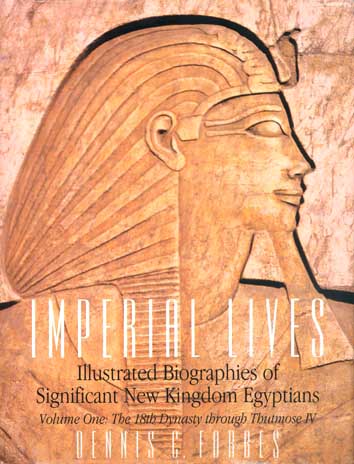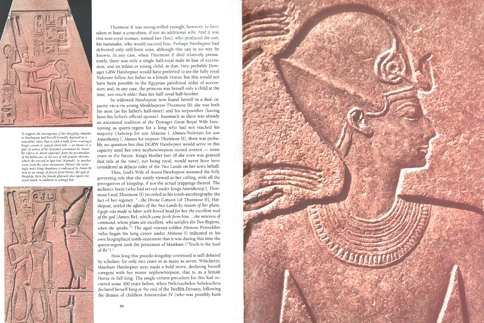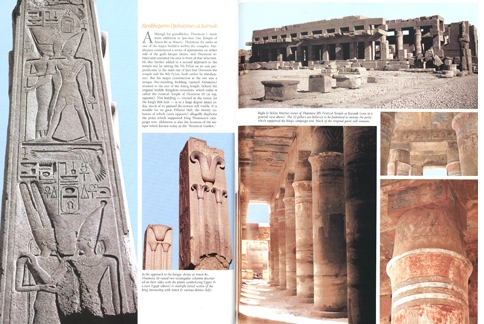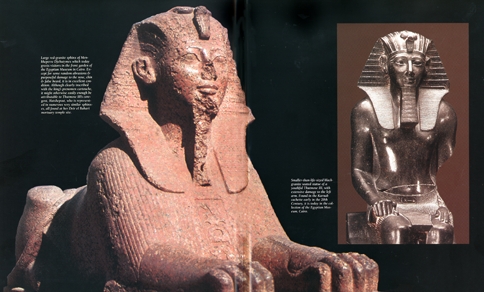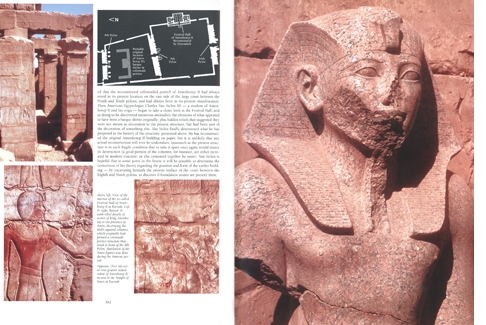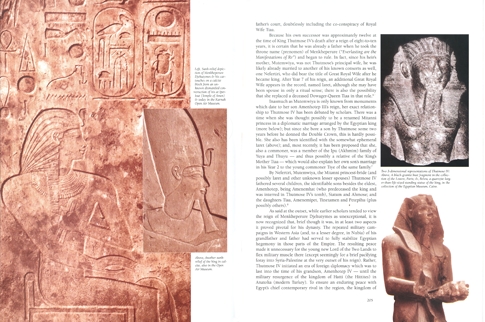The nearly 500-year period of the ancient
Egyptian empire — otherwise known as the New Kingdom (ca.
1550-1070 BC) — produced a number of fascinating
individuals at the highest echelons of power, whose names and
works have survived to modern times, and, in many cases, their
actual physical bodies, as well. In fact, except arguably for
the Caesars (those Roman emperors of the first two centuries
AD), no ancient rulers are as familiar today to the educated
lay person as the some three dozen pharaohs (and a few of their
queens and courtiers) who governed the Land of the Nile during
the apogee of the 3,000-year-long civilization of ancient
Egypt.
While many of
the Caesars benefited from genuine biographical accounts
written in their own lifetimes, or soon thereafter, the
pharaohs are really only remembered from the monuments they
erected and the boastful hiero glyphic texts and formulaic
relief images of themselves recorded on these now-ruined
buildings — and, of course, from surviving portrait
statuary or statue fragments, as well, which in almost every
instance preserve an idealized (or, more correctly,
“standardized”) image of the individual portrayed.
Biographies in the modern sense of the word (chronological
accounts of individual lives in all of their particulars) just
are not possible to write for ancient Egyptians of historical
note. Not enough is (or ever can be) known about those
pharaonic personalities, their interpersonal relationships
and the year-by-year — let alone more detailed — events
in their lives. Thus, anyone attempting a
“biography” of even such larger-than-life figures
as Hatshepsut, Thutmose III, Amenhotep III, Akhenaten or
Rameses II must be content with describing peaks rising from
the Nilescape of dense fog.
No matter how
many monuments, inscriptions, portraits and personal artifacts
(including even actual mortal remains) have survived, the
modern biographical “chronicler” is left to fill
in the sometimes-quite-large gaps of hard information regarding
the fifteen Early New Kingdom personalities profiled in this
volume (and those individuals in the subsequent two volumes in
the Imperial Lives series) with reasonable deductions and hopeful
surmises, avoiding all the while the temptation to concoct
“psychological” profiles for the subjects under
scrutiny.
(From the dustjacket)
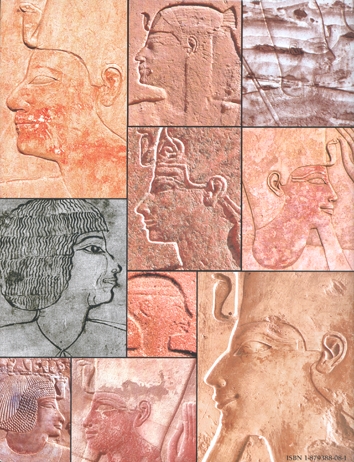
Contemporary depictions of 10 of the
persons profiled, from the volume’s dustjacket back.
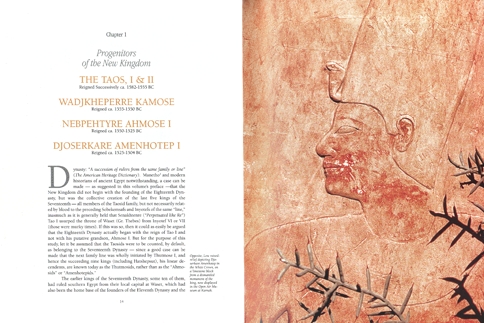
Table of Contents
CHAPTER 1
The Taosids, Progenitors of the
New Kingdom
Taos I & II, Kamose, Ahmose I &
Amenhotep I
CHAPTER 2
The Great Royal Wives of the
House of Tao
Tetisheri, Ahhotep, Ahmes-Nefertari
CHAPTER 3
Founder of the Thutmosid Dynasty
Akheperure Djehutymes I
CHAPTER 4
The All-But-Forgotten Second Thutmose
Akheperenre Djehutymes II
CHAPTER 5
The Female Pharaoh
Maatkare Hatshepsut
CHAPTER 6
Chief Steward of Amen, Royal Minion
Senenmut
CHAPTER 7
King’s Daughter, King’s
Sister,
God’s Wife of Amen
Princess Neferure
CHAPTER 8
The Third Thutmose, a Pharaoh’s
Pharaoh
Menkheperre Djehutymes III
CHAPTER 9
The Second Amenhotep
Akheperure Amenhotep-Heqaiunu II
CHAPTER 10
The Fourth & Final Thutmose
Menkheperure Djehutymes IV
Hardcover with dust jacket, 8.5 x 11 in.,
232 pages, 428
full-color & b/w illustrations, many
photos by the Author.
